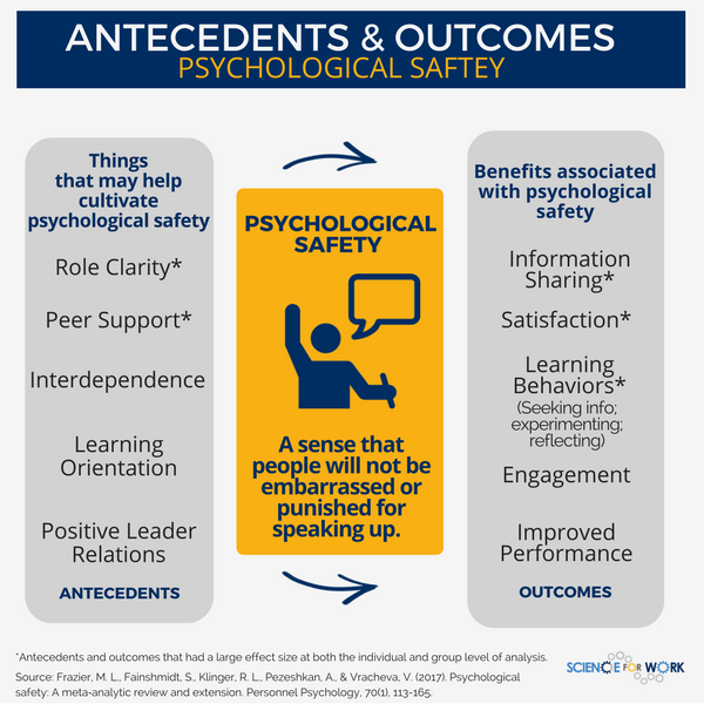I facilitated a discussion with ATD Buffalo Niagara on Psychological Safety and setting the conditions for it to emerge.
During the webinar, we discussed how psychological safety is different from trust within the workplace, explored and identified how to set conditions for a psychologically safe workplace to emerge and adapt through challenges and successes, and co-constructed what we can do as talent development professionals to create psychologically safe learning spaces.
Ideas for psychological safety conditions
As leaders, how do we set the conditions for psychological safety to emerge?:
- Openly share examples of failure or struggle, and share how the team helped you or how you learned a different way to manage or approach a situation.
- Work to define better roles of team members and how the roles work together.
- When someone shares a mistake or failure, thank them, and recognize or ask how others can learn from the example.
- When someone shares a mistake or accident, listen to them – and don’t use it against them later or punitively.
- Keep accountability high. People need to feel some pressure to do their best work – while still having that “release valve” to share their pressure and stress and learn about themselves and the team.
- Facilitate pre-mortems often,
- and after-action or processing and learning following projects and challenging teams tasks or meetings.
- Hold monthly f-up discussions — and fertilize informal networks to share stories of challenging customers or interactions and how they handled or what they will avoid next time.
- Don’t be a jerk.
- Recognize that a psychologically safe team will argue (with the manager and each other) and be “big enough” to listen and see this discussion and disagreement as a cooperation point.
- Become concerned when things are going too good — they may be a weak signal that people are hiding things and are feeling psychologically unsafe.


